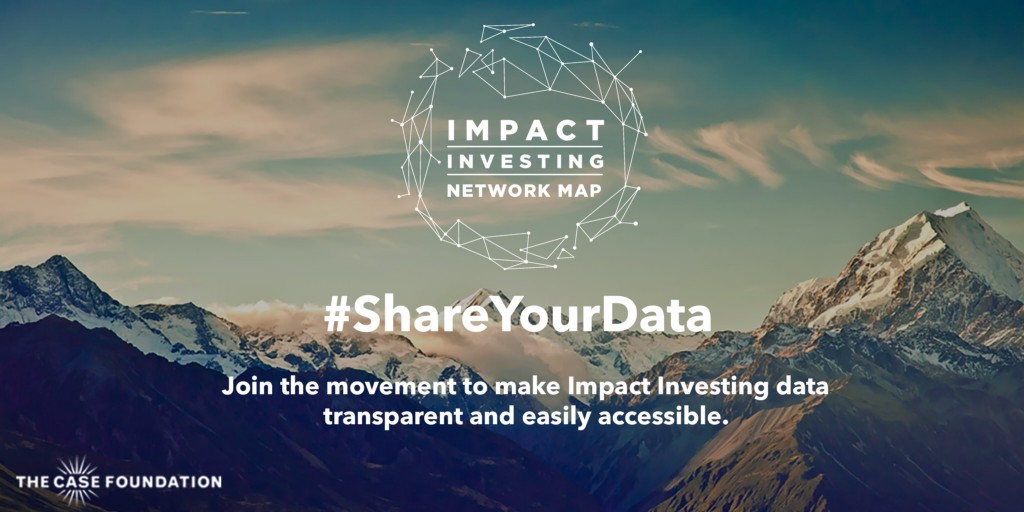Jean Case, our CEO, issued a simple clarion call in the Stanford Social Innovation Review last month: #ShareYourData.
The time is now. The impact investing field has grown leaps and bounds since the Global Impact Investment Network first started tracking the growth of the field in 2010. Networks like Toniic and The ImPact have brought together a range of interested investors who want to learn more about allocating for impact. Even dedicated impact funds are attracting LPs with diverse motivations. We’ve witnessed large-scale asset managers jump into the space, alongside a rise in specialty managers that are building businesses around servicing impact.
With a surge in activity, the Case Foundation’s commitment to transparency laid out in SSIR is particularly critical. We believe that to truly scale impact investing, we need to continue to engage in discourse around the challenges and solutions we are encountering in our everyday work.
With ImpactAlpha, the Case Foundation is kicking off a four-part series alongside Acumen, Bridges Fund Management, and ImpactSpace (ImpactAlpha’s open impact database) to share concrete lessons learned around tackling pervasive challenges across the impact investing ecosystem. Each of our stories digs in on the complexities of changing culture, practice, expectations and habits across a range of actors.
The Case Foundation’s work in impact investing has focused critically on myth busting. We have consistently conveyed the importance of pushing back on misconceptions around concessionary returns, the nascent size of the industry and fear of cannibalization of philanthropy. Across our work, we’ve seen that these myths create barriers to engagement, ensuring that the most significant problems we face across the globe remain under-invested or ignored.
The Impact Investing Network Map is an easy-to-use tool that provides current and potential investors, intermediaries and social entrepreneurs with a snapshot of the impact investing market, searchable by geography, asset class and impact objective. In its Beta version, the Network Map visualizes the relationships between investors and companies, based on publicly available information from our data partners, ImpactSpace and Crunchbase.
Though self-reported, publicly available data has limitations, we’re looking for transparency to become the norm. As more and more data is made available, it will paint a clearer picture of the overall state of the field, including gaps and potential areas of growth. The more investors that submit their data directly to ImpactSpace, the more comprehensive a picture of the impact investing space the Network Map provides.
The opportunity for growth is endless.
To reach that critical mass that will allow us to showcase these Insights, we need more actors to share their data. The Impact Investing Network Map features a range of information for each company or investor. Organizations submitting data can include critical profile data, like where a company is located, or the sector an investor focuses on.
Financial data around fundraising is also an important component of the tool. We recognize that there is a spectrum of reporting that actors will opt in to, and we continue to encourage responsible disclosure. That’s not an obstacle to organizations demonstrating their commitment to transparency. By providing simple but critical information on where we work or the impact we’re trying to have, we can know more about the scope of this ecosystem.
Transparency is key to growing the impact investing space, and we believe the Network Map is a valuable tool towards this end. But creating the Network Map is just the first step. We are asking leaders in the impact investing movement to share their available data and help us to better map the ecosystem.
Join us as a Beta tester by signing up at casefoundation.org/networkmap. Or share your data directly at impactspace.com.
In Operation Impact, leading practitioners bust common impact investing myths with practical solutions. The series is brought to you by ImpactAlpha in partnership with the Case Foundation, Acumen, Bridges Fund Management, and ImpactSpace (ImpactAlpha’s open impact database). More from the series:
Lean Data: The “how” of measuring impact at lower cost for higher value











